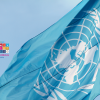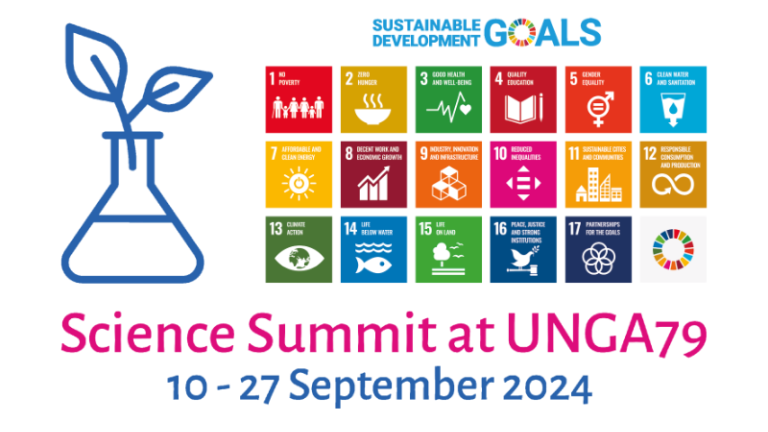
IIASA Advancing Systems Analysis Program is convening a session at the Science Summit during the 79th session of the United Nations General Assembly (UNGA79) to discuss a new global security framework grounded in a science-informed understanding of both social and biophysical realities.
Amidst accelerating global change, including the triple planetary crisis: global warming, biodiversity loss, and pollution, and shifting geopolitical equations, the global security framework, inherited from the post-WWII era, has become ineffective, contributing to a crippling dysfunctionality in international cooperation. The current security framework focuses almost exclusively on a narrow notion of military security. Respective multilateral institutions are insufficient to address mounting social and ecological challenges which increasingly endanger the lives and dignity of all populations.
In the session "Toward a New Global Security Paradigm", moderated by Advancing Systems Analysis Program Director Elena Rovenskaya, we will explore the potential of a novel, global socio-ecological security framework, grounded in a science-informed understanding of both social and biophysical realities, to effectively address the evolving needs and interconnected challenges of the 21st century.
A new socio-ecological security paradigm would be based on the following foundations:
- Human survival depends on healthy ecosystems: Maintaining the resilience of our Earth systems should be an imperative of our collective global security rather than a voluntary act of conservation.
- Societies where everyone's basic needs and rights are met are less prone to conflicts: Ensuring guaranteed access to food, shelter, education, and primary healthcare should be foundational to security, rather than merely a matter of humanitarian crisis management.
Importantly, an essential pre-requisite for embracing socio-ecological security is renewing the global commitment to multilateralism and peace.
In this session, we will explore the feasibility of implementing a socio-ecological security framework. We will also discuss both the practical steps needed for the establishment and maintenance of this framework, as well as the barriers that may hinder its implementation and sustainability.
A window of opportunity still exists to foster a positive security framework enabling sustainable well-being for all as opposed to negative security from the external enemy. Making socio-ecological security a key piece of the post-2030 agenda for sustainable development would be a major step to ensure sustainable well-being for all.
Toward a New Global Security Paradigm Session
Special Remarks by:
Mary Robinson, Former President of Ireland, Former UN High Commissioner for Human Rights, The Planetary Guardians
Moderator:
Elena Rovenskaya, Advancing Systems Analysis Program Director, International Institute for Applied Systems Analysis (IIASA), Austria
Panellists:
Maja Groff, Convenor & Steering Committee Member, Climate Governance Commission
Heide Hackmann, Chair in Science Futures, Stellenbosch University, Centre for Research on Evaluation, Science and Technology (CREST), South Africa
Paul Ingram, Research Affiliate and former Academic Programme Manager, Centre for the Study of Existential Risk, University of Cambridge, UK
Maria Ivanova, Director and Professor, School of Public Policy and Urban Affairs, Northeastern University, USA
Pratik Patil, Researcher, International Institute for Applied Systems Analysis (IIASA), Austria
Ashok Swain, Head of Department and Professor, Department of Peace and Conflict Research, Uppsala University, Sweden
Ambassador Lamberto Zannier, OSCE Secretary General (2011-2017), retired from the Ministry of Foreign Affairs and International Cooperation of Italy
The Science Summit during the United Nations General Assembly (UNGA) is a premier global event that unites thought leaders, scientists, policymakers, and innovators to address the most pressing scientific and technological challenges of our time.
The Science Summit serves as a dynamic platform for showcasing cutting-edge research, sharing knowledge, and fostering inclusive international collaboration. Participants engage in sessions, plenaries, and workshops that cover a broad spectrum of topics aligned with the United Nations Sustainable Development Goals (SDGs) and the UN Summit of the Future.
Upcoming Events
Austrian Academy of Sciences, Dr. Ignaz-Seipel-Platz 2, 1010 Vienna
IIASA-OeAW lecture: research and prevention of forest fires
Vienna, Austria and online




